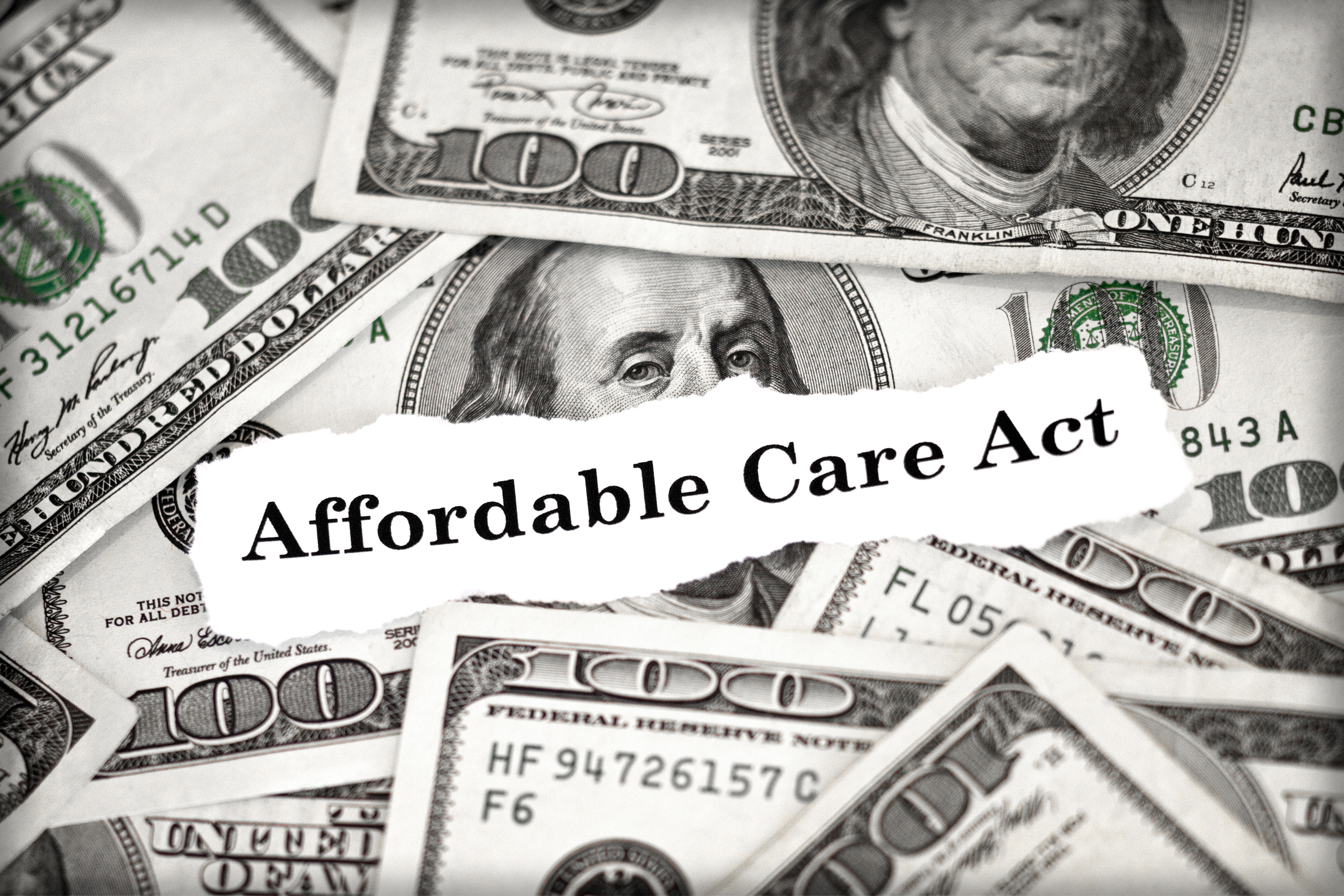Keeping Health Coverage When Changing Jobs
Until 2014, staying insured with a pre-existing condition will depend on what state you live in.

Profit and prosper with the best of Kiplinger's advice on investing, taxes, retirement, personal finance and much more. Delivered daily. Enter your email in the box and click Sign Me Up.
You are now subscribed
Your newsletter sign-up was successful
Want to add more newsletters?

Delivered daily
Kiplinger Today
Profit and prosper with the best of Kiplinger's advice on investing, taxes, retirement, personal finance and much more delivered daily. Smart money moves start here.

Sent five days a week
Kiplinger A Step Ahead
Get practical help to make better financial decisions in your everyday life, from spending to savings on top deals.

Delivered daily
Kiplinger Closing Bell
Get today's biggest financial and investing headlines delivered to your inbox every day the U.S. stock market is open.

Sent twice a week
Kiplinger Adviser Intel
Financial pros across the country share best practices and fresh tactics to preserve and grow your wealth.

Delivered weekly
Kiplinger Tax Tips
Trim your federal and state tax bills with practical tax-planning and tax-cutting strategies.

Sent twice a week
Kiplinger Retirement Tips
Your twice-a-week guide to planning and enjoying a financially secure and richly rewarding retirement

Sent bimonthly.
Kiplinger Adviser Angle
Insights for advisers, wealth managers and other financial professionals.

Sent twice a week
Kiplinger Investing Weekly
Your twice-a-week roundup of promising stocks, funds, companies and industries you should consider, ones you should avoid, and why.

Sent weekly for six weeks
Kiplinger Invest for Retirement
Your step-by-step six-part series on how to invest for retirement, from devising a successful strategy to exactly which investments to choose.
I have a serious medical condition, and I would like to change jobs. Is there a way that I can keep my old coverage if my new employer doesn't offer health insurance? I can't afford to lose my medical insurance, and I would be denied coverage by insurance companies if I tried to buy it on my own.
Starting in 2014, insurers will no longer be able to reject anyone for coverage or charge a higher rate because of a preexisting condition. A few states, such as New York and New Jersey, already have this requirement. If you live in another state, several consumer protections can help you keep your coverage through a former employer. Employers with 20 or more employees usually must let you continue the insurance through the federal law known as COBRA. You can continue your coverage for up to 18 months after you leave your job (some states have similar rules, called “mini-COBRA coverage,” for smaller employers). Your premiums will increase because you'll have to pay both the employer's and the employee's share of the cost, plus a 2% administrative fee, but you can't be rejected because of your health. When you leave your job, your employer is required to send you written notice explaining your rights under COBRA. You have up to 60 days after you receive the notice to sign up. (See the Department of Labor's COBRA fact sheet for more information.) After you exhaust that coverage, or if you worked for a small employer that doesn't offer COBRA, you can get a "HIPAA-eligible policy." This coverage, created by the federal law known as HIPAA, varies by state. Some states require insurers to provide policies that pick up after COBRA, or they; others designate a few companies to cover everyone, regardless of health.
If you don't qualify for one of those options, you might be able to get coverage through a state high-risk insurance pool. The state pools created by the health care reform law, called preexisting condition insurance plans, require you to be uninsured for six months before you can sign up. But many states already had their own pools. Those pools may have higher rates than the one created by the health care act, but they generally impose no waiting period.
From just $107.88 $24.99 for Kiplinger Personal Finance
Become a smarter, better informed investor. Subscribe from just $107.88 $24.99, plus get up to 4 Special Issues

Sign up for Kiplinger’s Free Newsletters
Profit and prosper with the best of expert advice on investing, taxes, retirement, personal finance and more - straight to your e-mail.
Profit and prosper with the best of expert advice - straight to your e-mail.
To find out about the high-risk-pool and HIPAA coverage in your state and other consumer protections, see CoverageForAll.org and HealthCare.gov.
Profit and prosper with the best of Kiplinger's advice on investing, taxes, retirement, personal finance and much more. Delivered daily. Enter your email in the box and click Sign Me Up.

As the "Ask Kim" columnist for Kiplinger's Personal Finance, Lankford receives hundreds of personal finance questions from readers every month. She is the author of Rescue Your Financial Life (McGraw-Hill, 2003), The Insurance Maze: How You Can Save Money on Insurance -- and Still Get the Coverage You Need (Kaplan, 2006), Kiplinger's Ask Kim for Money Smart Solutions (Kaplan, 2007) and The Kiplinger/BBB Personal Finance Guide for Military Families. She is frequently featured as a financial expert on television and radio, including NBC's Today Show, CNN, CNBC and National Public Radio.
-
 How to Watch the 2026 Winter Olympics Without Overpaying
How to Watch the 2026 Winter Olympics Without OverpayingHere’s how to stream the 2026 Winter Olympics live, including low-cost viewing options, Peacock access and ways to catch your favorite athletes and events from anywhere.
-
 Here’s How to Stream the Super Bowl for Less
Here’s How to Stream the Super Bowl for LessWe'll show you the least expensive ways to stream football's biggest event.
-
 The Cost of Leaving Your Money in a Low-Rate Account
The Cost of Leaving Your Money in a Low-Rate AccountWhy parking your cash in low-yield accounts could be costing you, and smarter alternatives that preserve liquidity while boosting returns.
-
 Health Insurance Tax Credits and the Government Shutdown: What to Know
Health Insurance Tax Credits and the Government Shutdown: What to KnowTax Credits Previous shutdowns have occurred for various reasons, including border wall funding. But this time, the standoff centered in part on health care and taxes.
-
 End of Expanded Premium Tax Credit Would Drive Uninsured Rates Higher
End of Expanded Premium Tax Credit Would Drive Uninsured Rates HigherTax Credits Millions of people could become uninsured if Congress fails to extend the enhanced premium tax credit.
-
 Over 162,000 Dreamers Cut Off From Affordable Care Act Insurance
Over 162,000 Dreamers Cut Off From Affordable Care Act InsuranceHealth Insurance A federal court in North Dakota has blocked ACA coverage for DACA recipients in 19 states. Here's what it means.
-
 2025 Open Enrollment: Some DACA Recipients Can Purchase Affordable Care Act Health Insurance
2025 Open Enrollment: Some DACA Recipients Can Purchase Affordable Care Act Health InsuranceOpen Enrollment Your eligibility to purchase health insurance from the federal marketplace may have changed. Here's what you need to know.
-
 Medicare, ACA Call Center Workers To Hold Another Protest: What To Know
Medicare, ACA Call Center Workers To Hold Another Protest: What To KnowMedicare and Obamacare call center employees plan another protest, this time in Washington, DC on December 12.
-
 Laid Off With a Severance Package? Here’s How to Make a Plan
Laid Off With a Severance Package? Here’s How to Make a PlanGathering all the relevant information and staying organized is key, as is getting your financial team involved. Here are five financial planning tips to help.
-
 Your Guide to Open Enrollment 2023
Your Guide to Open Enrollment 2023Employee Benefits Health care costs continue to climb, but subsidies will make some plans more affordable.
-
 5 Things to Consider When Weighing a Job Change
5 Things to Consider When Weighing a Job Changecareers Financially speaking, the decision to stay or go is about more than just salary. Take a holistic look at your offer before deciding to take the leap to a new job.